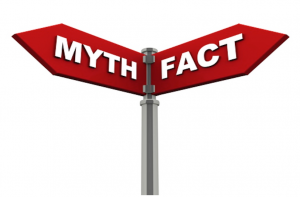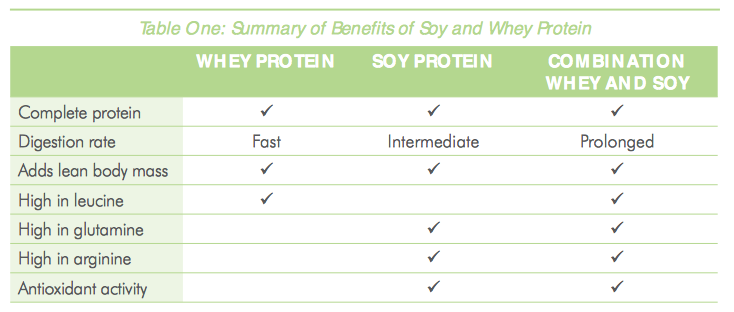Setting Soy Straight – Everything You Need to Know
 The humble soy bean is a nutrient-dense legume with a considerable history of both culinary and medicinal use.
The humble soy bean is a nutrient-dense legume with a considerable history of both culinary and medicinal use.
An important dietary staple in Asian cultures, soy consumption has been associated with lower incidence of coronary artery disease, ischemic stroke, hormone-dependent cancers and osteoporosis in these populations prompting it to become one of the most widely-studied functional foods.
The health benefits of soy, both dietary and supplemental, are well recognised due to the increasingly robust body of evidence to support its use in a number of areas of therapy.
Body Composition Enhancement
Soy is a complete source of dietary protein, containing all the essential amino acids required for growth and metabolism. Its moderate digestion rate and ability to modulate satiety hormones and stabilise blood glucose make it an ideal protein in weight management programs.
Based on these activities, soy protein is core component alongside a whey protein powder; a meal replacement designed to complement a low- carbohydrate diet.
Whey provides a highly bioavailable source of protein which creates a rapid peak in serum amino acid levels, while the comparatively ‘intermediate’ absorption rate of soy protein provides a slower amino acid release, meaning the combination together prolongs amino acid delivery to tissues (Table One).
Improved Cardiometabolic Function
The weight management benefits of soy render it very useful in mitigating one of the single biggest risk factors for cardiometabolic disease development, obesity.
However, emerging research has shown that soy protein causes direct improvements in insulin signalling and blood lipid profiles, unrelated to its positive effects on body composition.
In obese patients, dietary soy protein has been shown to lower plasma lipids and subsequent fat accumulation in liver and adipose tissue, thereby reducing atherosclerotic risk and other lipotoxic complications.
While whey protein contains a high level of the amino acid leucine perfect for maximising muscle growth, soy protein is a particularly rich source of the amino acid arginine (Table One).
Arginine is essential for nitric oxide production, the major circulatory vasodilator controlling blood pressure. In addition to this, soy is also the only protein proven to possess antioxidant activity making it a logical source of protein for individuals at increased risk of cardiometabolic disease.
Hormone-Balancing and Chemoprotective Benefits
The fascinating link between soy consumption and reduced cancer rates observed in traditional cultures has inspired significant scientific interest in soy’s unique ability to influence oestrogen levels and activity.
Originally categorised as a phytoestrogen, soy has recently been accurately reclassified as natural, selective oestrogen receptor modulator (SERM).
Rather than exerting a direct oestrogen-like action, soy isoflavones such as genistein and diadzein have been shown to selectively down-regulate ER-alpha activation, the receptor known to play a causal role in oestrogen-dependent cancers due to its proliferative effects.
Simultaneously, soy up-regulates the anti-proliferative ER-beta, which is protective against cancer as well as having beneficial effect on bone density.
Soy isoflavones offer further chemoprotection through promoting healthy oestrogen biotransformation and excretion explaining soy’s therapeutic application in oestrogen- dominant cancers and conditions such as uterine fibroids and endometriosis.
Interestingly, their activity as a SERM means soy isoflavones are also advantageous for oestrogen-deficient conditions such as menopause and osteoporosis.
These remarkable amphoteric effects are a classic example of the powerful ability of phytomedicines to target the physiological imbalance requiring correction.
Oestrogen plays a central role in bone health by regulating parathyroid function, calcium status stimulating osteoblast production and inhibiting bone breakdown and resorption.
By binding to and modulating ER-beta, the primary target of oestrogen within the bone, soy isoflavones can attenuate post- menopausal bone loss, as well as directly inhibiting osteoclast proliferation and bone resorption.
These effects highlight their potential in the treatment and prevention of osteoporosis and are the reason behind soy’s inclusion in Hydroxyapatite and Soy for Osteoporosis.
Containing the highly bioavailable microcrystalline hydroxyapatite bone extract and other key vitamins and minerals for the maintenance of bone density, the addition of soy makes it a highly effective formula for optimising bone health.
Debunking the Myths Surrounding Soy
Despite the plethora of clinical evidence to the contrary, some people still have negative perceptions regarding soy due to the prevalence of misinformation in the media.
Lets take a quick look at some of the common myths regarding soy.
1. All soy is GMO – FALSE!
There is a common misconception that all soy is genetically modified (GM), which is untrue. Health World uses only non-GM sources of soy in our formulations, for integrity of the therapeutic action as well as the frequent contamination of GM soy with the pesticide, glyphosate.
2. Soy exacerbates thyroid conditions – FALSE!
Early observations that soy could be goitregenic were only seen in iodine deficient communities, which is understandable based on iodine’s essential role in thyroperoxidase (TPO) activity and thyroid hormone production.
Since that time, the body of scientific literature has failed to demonstrate a causal relationship between soy intake and goitre incidence in iodine-replete individuals, and a number of well-controlled trials have deemed soy to have an insignificant effect on thyroid function. Any concern of risk can be easily offset with concurrent iodine supplementation.
3. Soy will give you cancer – FALSE!
 Concerns exist that phytoestrogens may promote hormone-dependent cancers such as breast, ovarian and prostate cancers, yet human clinical evidence proves the contrary is true.
Concerns exist that phytoestrogens may promote hormone-dependent cancers such as breast, ovarian and prostate cancers, yet human clinical evidence proves the contrary is true.
Large population-based studies link soy isoflavone consumption with decreased rates of metastatic cancers with various human clinical studies showing soy offers a protective benefit in individuals at risk of breast and prostate cancer.
In fact, a prospective study conducted in 616 breast cancer sufferers correlated daily soy intake with a reduction in breast cancer mortality after a four year follow-up.
4. Soy is unsuitable for males – FALSE!
Another myth shadowing soy consumption is that its consumption by males will increase their oestrogen levels at the expense of testosterone and therefore may lead to conditions of hormonal imbalance such as infertility, gynecomastia or prostate cancer development.
As discussed above, soy isoflavones are oestrogen modulating – they cannot negatively tip the balance of hormones in men or women. In fact, soy is beneficial for males with numerous studies confirming a wealth of chemoprotective benefits for prostate cancer.
Xeno-oestrogens and excessive adipose tissue on the other hand, can influence oestrogen levels in males resulting in gynacomastia and other hormonal changes.
Further Reading:







